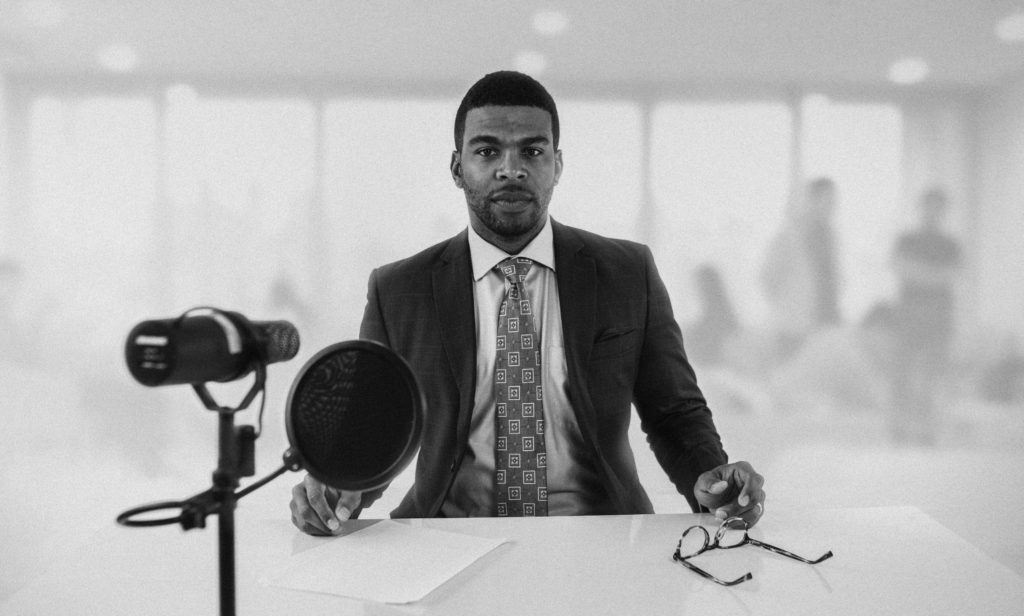Who Needs God? Series Summary
Published January 2019.
Christians are haunted by doubt and non-believers are haunted by belief—we’re all haunted.
Who Needs God? - The Truth About Doubtis a sermon series for all of us, but for differing reasons depending on where you are on your spiritual journey. If you’re quite certain of what you believe and steadfast in that belief—whether Christian or atheist or something else—then this will primarily serve you to understand what many of your friends and family and neighbors and co-workers are wrestling with; whether they know it or not.
If you’re not certain, if you’re a Christian and walking through a crisis of faith, or you’re agnostic and walking through a crisis of belief, this will serve you in perhaps a different way. It will hopefully speak to the very things you see and feel and think as you wander and wonder about. Even if the nomenclature we use isn’t the way you articulate it (what the heck is disenchantment anyway?), perhaps it will act as a tour guide on your spiritual journey—calling out the road names and explaining the sign posts as you walk by.
"Christians are haunted by doubt and non-believers are haunted by belief—we’re all haunted."
I hope it does.
As a Christian, I believe that everything is charged with the grandeur of God—the touch of God, his beauty, and wisdom, and power. But everything is also broken. Humanity has its fingerprints on everything as well, and as amazing as these humans are—what with their technological advancements, good deeds, and love for each other—we also are responsible for the injustices in the world, the corruption of our systems, and the public shaming that takes place daily on social media. Nothing is as it should be.
If we’re going to ask, “Who needs God?” we should also ask, “Who needs us?” Humanism is a faith system too, and I have some doubts.
But this series is mainly about doubting God (or even the believability of God). And I’ve struggled with doubt too. This series is for all of us—including me. At times I’ve struggled with God’s goodness; I’ve doubted that he hears me, my prayers, my petitions—why do even godly desires, those that seem to align with his will, go unanswered, or replied, “no”? Our thoughts are not his thoughts; our ways not his ways—and his thoughts and ways can be frustrating at times.
I fled Him, down the nights and down the days;
I fled Him, down the arches of the years;
I fled Him, down the labyrinthine ways
Of my own mind; and in the midst of tears
I hid from Him, and under running laughter.
Up vistaed hopes I sped;
And shot, precipitated,
Adown Titanic glooms of chasmed fears,
From those strong Feet that followed, followed after.
But with unhurrying chase,
And unperturbèd pace,
Deliberate speed, majestic instancy,
They beat—and a Voice beat
More instant than the Feet—
'All things betray thee, who betrayest Me'.
— The Hound of Heaven, Francis Thompson
But we also have to realize the culture around us affects us. Maybe it’s not all God. Maybe there are other factors that lend us to this moment or season of questioning, of wondering. We dove into the deep end of life in America, splashing about in this culture of options and dreams, without surveying the water. We have to know what we’re swimming in.
Does the technology and the trinkets and the phones and the plethora of things to do and watch and buy create this “immanent frame,” as sociologist Charles Taylor puts it— this boxed in mentality that says, “This is all there is, and isn’t it great!” I mean who needs God when you can google your questions, Uber your way to the store for your latest desire, Door Dash your next meal, Netflix your way into tomorrow, and Amazon...well, anything? And doesn’t science explain everything? What’s mysterious anymore? And if you want mystery you just watch it—somebody thought of a cool story; enter in, engage the senses, watch to your heart’s delight, and then Tweet about it.
Thus, Mike Cosper in, Faith Among the Faithless (pg. 61), says: “We, too, are enslaved and abused by our culture. Think of all the ways our world tells us we’re inadequate, and all the ways it tries to sell us on something else that will ultimately make us happy…Our whole consumer economy is designed to prey on our sense of weakness and our longings, and it works. We are an anxious, rootless, desperate world.”
We’re so immersed in a world without mystery.
A century ago, the German sociologist Max Weber asserted that the modern, Godless age was characterized by a sense of “disenchantment.” Weber seems to have meant that without God or religion modern man moves in a rational, scientific world, without appeal to the supernatural, and is perhaps condemned to search fruitlessly for meaning and depth and beauty and purpose.
MY HOPE
My hope for us all—believer and non-believer; the certain and the skeptic—is that we can have good conversations where we can understand each other, and love well.
For Christians especially, a pattern we see in the book of Acts, are Christians reasoning, persuading, and encouraging, not agitating, stirring up, or attacking. The early Christians stood out as reasonable people in an angry world.
As well, I hope we all can see both a God who his kind and patient in our doubts, and that a church—infused with the grace of this God—can be a safe place for any bruised reed.
For His Fame,
Pastor Jim Essian
Go to the Who Needs God? sermon series page for resources and more


